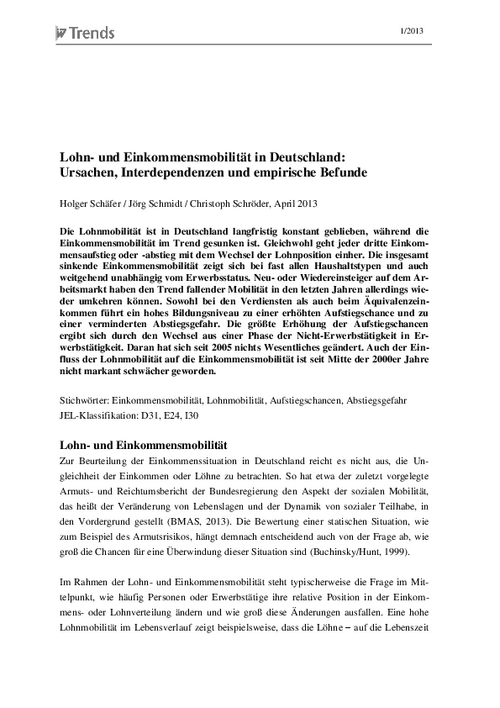Causes, Interdependences and Empirical Findings

Wage and Income Mobility in Germany

Causes, Interdependences and Empirical Findings
While wage mobility in Germany has remained constant over time, income mobility has tended to decline. Nevertheless, every third advance in income level stems from a change in wage level. The overall decline in income mobility is evident in almost all types of household and also is largely independent of employment status. However, within the last few years those entering or returning to the labour market have been able to buck the downward trend. For both earnings and equivalised incomes, a high level of education leads to an increased chance of advancement and to a reduced danger of falling back. The chances of advancement are most improved by taking up gainful employment after a period without it. In this respect, there has been no substantial change since 2005. In addition the influence of wage mobility on income mobility has not significantly weakened since the middle of the 2000s.
Download | PDF

Wage and Income Mobility in Germany

More on the topic

A Macroeconomic Analysis of Wage-Price Spirals
The subject of this Analysis is the forms that wage-price spirals can take and how they influence macroeconomic stability and inflationary trends in Germany.
IW
IW Distribution Report 2023: Attitudes towards social mobility
Fundamentally linked to the social market economy is the idea that everyone has the opportunity for social advancement, regardless of their social background, and that children should be better off than their parents.
IW